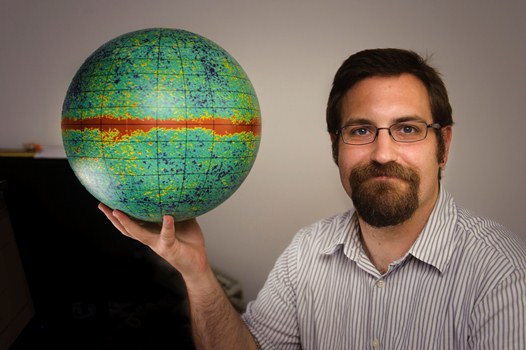 Dr. Michael Solontoi, the director of the Belk Observatory, sees lots of stars in his future, especially bright students who are interested in research.
Dr. Michael Solontoi, the director of the Belk Observatory, sees lots of stars in his future, especially bright students who are interested in research.
“I really, really wanted to teach at a small liberal arts school,” said Dr. Solontoi, who is also an assistant professor of physics and astronomy. “I went to one — Reed College.”
The Belk Observatory is a great place to get students interested in astronomy, he said. “It’s really fantastic. The 20-inch telescope is a wonderful tool. It’s a vastly larger telescope than what most small physics-centered schools have.”
Dr. Solontoi (pronounced So-lon-tie) takes the lead at the observatory from Dr. Neal Sumerlin, the founding director who retired in May. “Neal did a lot of outreach,” he said, adding that Dr. Sumerlin will continue to facilitate monthly open houses at the observatory, which opened in 2009 at the College’s Claytor Nature Study Center.
Dr. Solontoi comes to LC from the Adler Planetarium in Chicago, where he was a postdoctoral research scientist. His main area of research involves small solar system bodies, primarily asteroids and comets. He says he would love to find students interested in helping him pursue that research, but he’s also got a drawer full of other research ideas.
Students interested in learning about the possibility of Earth-asteroid collisions will find a wealth of knowledge in Dr. Solontoi, who is a collaborator on the LSST (Large Synoptic Survey Telescope) currently under construction in Chile that will tell us more about all the large asteroids that could pose a threat to Earth.
Even with improved views of our solar system, we would need 20 years’ warning with current technology to do something about a possible collision, Dr. Solontoi said. Collisions remain notoriously difficult to predict. “Every seven minutes the Earth changes its position entirely,” he said.
But Dr. Solontoi is not an alarmist on that point. “What we are doing to the climate, to the environment, and to each other is a bigger problem,” he noted.
Dr. Solontoi earned his PhD and M.Sc. in astronomy from the University of Washington and his BA in physics from Reed College in Portland, Oregon. When he’s not asteroid-gazing, he enjoys reading history and biography, skiing, and hiking.

